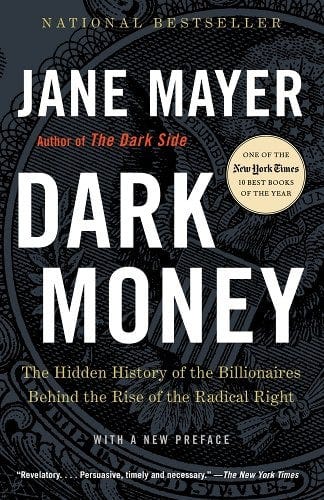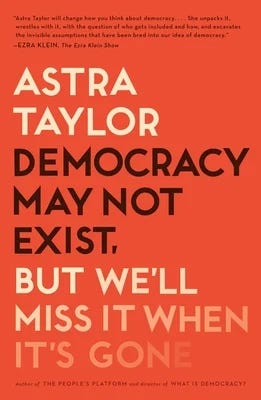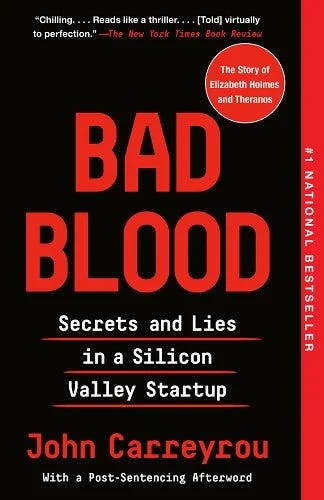In some of the least surprising news ever, a handful of Silicon Valley bigwigs came out publicly in supporting Donald Trump.
Elon Musk is going to give Trump-associated Super PACs $45 million a month. Venture capitalist mucky-mucks Marc Andreessen and Ben Horowitz recorded a 90-minute podcast explaining their reasoning for backing Trump, including the “final straw,” which is a democrat proposal to (very modestly) tax unrealized capital gains for households worth more than $100 million. David Sacks, another Silicon Valley investor, and Bill Ackman,1 who led the campaign to oust Harvard president Claudine Gay on trumped up plagiarism charges, and wound up leading to the exposure of his wife’s far shoddier scholarship, previously threw their wealth behind Trump, despite also previously declaring him unfit for office.
Mark Zuckerberg said he’s not endorsing any candidate, but did remark that Trump’s reaction after the attempted assassination attempt was “badass.”
I think there’s a couple of important things to consider here. One, is that these people have the minds of children in the bodies of adult megalomaniacs with access to resources that are beyond imagining.
What is there to say about Musk, other than he is a deeply weird, disordered person - possibly suffering from a ketamine addiction - who believes and promulgates conspiracy theories, as well as other political misinformation like the deeply racist “great replacement theory”? As
recounted at her newsletter all the way back in 2022, Musk has long had a conspiratorial right wing world view. He sees himself as a world historical figure, a one-man re-populator of Earth (having fathered a dozen children that we know of), and future colonizer of Mars.Andreessen and Horowitz are not quite so publicly grandiose, but if you listen to even the first couple of minutes of their podcast explaining why Trump you will experience their very peculiar logic, which goes something like this:
“Little tech,” which is their term for the startups they fund, is the most important vehicle for ensuring a secure and prosperous America by ensuring American technological supremacy.
Regulations and regulators under the Biden administration have been unfairly and unreasonably stifling technological innovation. Their example of this is the blockchain.
The (as yet entirely theoretical) regulations coming for AI will stifle a technological shift which will be world historically transformative.
The Biden administration and democrats in general actively want startups to fail.
Trump is more likely to leave them to conduct their world historical changing business without interference.
This is obvious self-delusion and self-justification to ignore the more than theoretical dangers of another Trump presidency. Does anyone remember January 6th? How about Trump’s stated enthusiasm for authoritarians like Viktor Orhan of Hungary, and his clear intention to follow that lead?
Mostly it’s a belief that people like Andreessen and Horowitz and Peter Thiel (who all but installed J.D. Vance as Trump’s running mate) know best as to what the country needs for the future, and they should be left alone to pursue those ends, unfettered by all that messy government oversight stuff.
These guys love Vance because he’s one of them, having first apprenticed under Thiel before starting his own investment firm.
has a delightful and troubling round-up of Vance’s VC investment portfolio, which includes companies working in “gene therapy,” “space security,” and bargain basement insurance coverage, real salt-of-the-earth stuff.As to whether the tech sector could use a little more actual oversight, both as products are on their way up, and once they become inextricably (and often invisibly) entangled with our lives, I offer the exhibit of the Crowdstrike software meltdown from this past week, which halted air travel across the country.
Andreessen sees himself as a modern Prometheus with both the wisdom and power to bestow life-altering technological change to humanity. He sincerely believes that artificial intelligence will solve all problems. He thinks technology is magic.
Peter Thiel, as
persuasively argues, is a straight up fascist, aligned with other fascists, and of the strong belief that J.D. Vance is in ideological agreement with his views.Andreessen is indifferent to democracy.2 It’s fine if the broad strokes stick around as long as it doesn’t get in his way, but if Trump is going to be both authoritarian and leave “little tech” alone then that’s cool. Thiel is openly hostile to democracy, believing it has failed, and we’d be better off being ruled by people like him, or his vassals like Vance.
As Ganz discusses, there is a hesitancy in some quarters to use labels like fascist for people like Thiel, or Thiel’s intellectual running buddy Curtis Yarvin, but it’s pretty indisputable that they embrace essentially fascist world views. This is Ganz:
So, let’s sum up. Peter Thiel believes he belongs to an elite group, often understood in implicitly or explicitly racial terms, that is entitled to set aside democratic governance in favor of pursuing a program of technological progress and national restoration. He believes the political means to accomplish this is through a charismatic leader with manipulative, populist appeals to past national glory and against parasitic immigrants and culturally decadent liberalism. For him, even the most milquetoast, reformist liberalism is “tantamount to communism.” He’s obsessed with romanticized fantasies of absolute power, domination, and control. He dreams of wielding the the national security state against enemies both foreign and domestic. He envisioned a kind of imperialist world-state controlled not through deliberative bodies like the U.N. but directly by the intelligence and secret police bureaus. He combines the ideology of white collar, petit-bourgeois intermediary class with its emphases direct management techniques and closely-held ownership with the grandiose, world-spanning designs of an industrial titan. There’s really no contradiction within Peter Thiel’s politics, they are quite consistent: he’s just realized, more clearly than his opponents often, that there’s ultimately a contradiction between the rule of capital and democracy, and the way to deal with this contradiction, as far as he’s concerned, is to do away with democracy.
Calling these people fascist is sometimes derided as scare tactics or alarmism, but I don’t know in what world accuracy is alarmist. Another criticism is that labeling them fascist enhances their image of being powerful, maybe unstoppable. After all, these guys are really just baby men with stunted world views and limited object permanence when it comes to consistent application of ideology. Aren’t they more ridiculous than dangerous?
Why not both?
These are enormously wealthy people with deep ties to the national security state. Musk’s satellite network and rockets are depended upon by the U.S. government. Peter Thiel’s Plantir platform is essentially the backbone of the national security state.
Being worried about this stuff shouldn’t cause paralysis. None of what these people propose is inevitable, and if regular American voters were fully informed about the implications of what people like Thiel propose or what it would mean to them if “little tech” was even more untethered than it already is, they would not be for it.
At least I hope that’s the case, otherwise things are darker than I think.
Alright, since this is supposed to be newsletter about books and not “what’s John ranting about this week” I swore that I’d compile some titles that, at least for my money, help shed some light on the dynamics at work in what I have to say above.
Jane Mayer’s Dark Money: The Hidden History of the Billionaires Behind the Rise of the Radical Right is the story of how, behind the scenes, some very rich people (Koch Bros., et al…) used their wealth to establish institutions and gain influence that provide them an outsized influence on how our government operates. They have think tanks that help write the laws that are voted on by politicians who are funded by the same untraceable political donations. The most successful of these campaigns is The Federalist Society, which is directly responsible for placing maniac ideologues at every level of our judiciary, including the Supreme Court. They have remade our society while staying within the technical rules of democracy, acting against the spirit of democracy the whole time. The biggest change now is that they have succeeded so wildly, the money no longer needs to be dark. Peter Thiel feels comfortable openly buying his own possible future vice president. Also, shout out also to my friend Isaac Kamola and Ralph Wilson for their look at how Koch money was used to distort and destroy higher education: Free Speech and Koch Money: Manufacturing a Campus Culture War.
Democracy May Not Exist, But We’ll Miss It When It’s Gone by Astra Taylor looks closely at the gaps between democracy as a series of practices, and democracy as an animating spirt for organizing a collective society. Mitch McConnell refusing to hold hearings to replace Ruth Bader Ginsburg on the Supreme Court during the final months of the Obama presidency, and then turning around and rushing Amy Coney Barrett through in the final weeks of the Trump presidency follows the rules of democracy, but is it truly democratic? Judge Aileen Cannon has the power invested in her by the Constitution to dismiss the document mishandling case against Trump, even though every legal expert you can find says the ruling is ridiculous and its fairly clear that Cannon is acting as a Trump partisan. McConnell’s actions have led to a series of decisions that have removed rights from the people (e.g., the Dobbs decision). Cannon is placing a single figure above the law. As the summary copy of Democracy May Not Exist asks, “If democracy means rule by the people, what does it mean to rule and who counts as the people?” This is very much worth thinking about.
Theranos, the blood testing company at the center of John Carreyrou’s Bad Blood: Secrets and Lies in a Silicon Valley Startup is an example of Marc Andreessen’s “little tech” a start-up that rose up to achieve a nine billion dollar valuation before crashing down because the whole thing was a byproduct of fraud. Presumably pursuing people like Theranos CEO Elizabeth Holmes for committing fraud is one of the things Marc Andreessen is against in his vision for unfettered “little tech.” What’s a little crime-ing when you’re trying to save the world with your health care start-up? Who cares if the whole thing was a fantasy based in non-science? That’s the price of progress!
Anna Wiener’s Uncanny Valley came out only a few years ago, and chronicles a period less than a decade ago, but it feels like it came from an entirely different place, and because of that, it makes for fascinating reading today. Wiener tells the story of being a young person, drawn to Silicon Valley by chance of opportunity, quickly swept up into start-up jobs that seem almost made up, but also which pay quite well with the promise of potential vast future riches. Wiener has a gimlet eye for what surrounds her, which ultimately leads to her leaving the scene, but along the way we get a fascinating account of how the idealism that drives so many of the seekers begins to curdle into burnout and is replaced by a desire to at the very least get rich, so all that sacrifice is worth something.
This is the world we live in, the world we’ve made. At times, I absolutely do feel powerless against these forces, but it feels good to, at the very least, describe what’s going on in as clear a manner as I can muster. These are books that can help us see more clearly.
What books do you recommend on this front?
Links
This week at the Chicago Tribune I write about the terrific new linked short story collection, The History of Sound by Ben Shattuck. I was so struck by the book I read it twice. I’m also excited to announce that I’ll be sharing a Q&A with Ben right here at The Biblioracle Recommends as some bonus content next week.
In other John Warner creates content news, at Inside Higher Ed I wrote about how making your approach to teaching “student-centered” does not mean the instructor should sacrifice their own well-being. At my
newsletter I pondered what parts of student learning can be quantified.This final interview with the late Stephen Dixon came across my radar this week and it’s too beautiful not to share. The portrait of a person disposed to write who did just that for sixty years. It includes this gem that I think is going to be a jumping off point for a future newsletter, so consider this a placeholder:
Maybe you don’t care, but why do you think someone should read your work?
Nobody has to read my books. The only thing that’s important to me is that I have something to write.
The people have spoken and The New York Times has compiled the Top 100 list by popular reader vote. Recency bias is in full flower with Demon Copperhead coming in at #1 and Tomorrow, and Tomorrow, and Tomorrow, coming in at #7. Perfectly fine book, but just no, people. Also no to Project Hail Mary making it into the Top 100. I try not to be too much of a snob, but we’ve got to have some standards.
My friends at
now have a Substack that you can subscribe to by clicking that blue link on their name. At the website this week they featured a new, literary mashup, one of the site’s signatures: “Ernest Hemingway Visits Chappell Roan’s Pink Pony Club” by Amy Estes.Recommendations
1. The Trees by Percival Everett
2. Prophet Song by Paul Lynch
3. Martyr! By Kaveh Akbar
4. The MANIAC by Benjamin Labatut
5. The Mountain in the Sea by Ray Nayler
Joey H. - Columbus, OH
I think Joey can handle Flannery O’Connor’s Wise Blood. He’s either going to thank me profusely for recommending it, or curse me darkly for recommending it. Perhaps both.
1. Real Americans by Rachel Khong
2. Chain-Gang All-Stars by Nana Kwame Adjei-Brenyah
3. Aspiration: The Agency of Becoming by Agnes Callard
4. Wednesday's Child by Yiyun Li
5. Children of the New World by Alexander Weinstein
Mel C. - Boston, MA
It feels like it’s been a minute since I put Katherine Dunn’s Geek Love in someone’s hands. If Mel hasn’t read it, I look forward to having another convert to the greatness of the book.3
I mentioned their newsletters up top, but in closing let me add
’s Blood in the Machine: The Origins of the Rebellion Against Big Tech, and ’s When The Clock Broke: Con Men, Conspiracists, and How America Cracked Up in the Early 1990s as two more books that can help shed light on where we are today.I received the page proofs for More Than Words: How to Think About Writing in the Age of AI this week, which means I’ll be spending some time sitting on my hands as I read it so as not to be tempted to make changes that would throw a wrench in the book’s design and formatting. If you’re interested in pre-ordering, you can do that here.
Remember to be on the lookout for that Q&A with Ben Shattuck this week. He’s terrifically interesting in talking about The History of Sound.
Take care, one and all.
JW
The Biblioracle
In truth, Ackman is more of a garden variety hedge fund douche, but it’s really a matter of different breeds of the same species, rather than distinct entities.
This article by Rick Perlstein recounting a dinner he had with Andreessen and other tech industry figures also suggests Andreessen is just a horrible human being.
All books (with the occasional exception) linked throughout the newsletter go to The Biblioracle Recommends bookstore at Bookshop.org. Affiliate proceeds, plus a personal matching donation of my own, go to Chicago’s Open Books and an additional reading/writing/literacy nonprofit to be determined. Affiliate income for this year is $79.00.







Excellent “editorial” today. People need to be aware of the tech-bro millionaires who are supporting and financing Trump and his allies. Dangerous people with almost unlimited money. JD Vance was Peter Thiel’s butler and was never successful himself in the tech/venture capitalist world. But Thiel held his hand, introduced him to Trump, and Vance morphed into a further-right clone of Trump who may be a future VP. Scary stuff, and all because of a very wealthy man-baby who is buying himself a country. Keep talking about this, John!
A great companion piece to ‘Dark Money’ is Nancy MacLean’s ‘Democracy in Chains’, which takes a historical look at how economics without morals became entrenched in the U.S., and provided fertile soil for bad seeds like Musk, Thiel, etc. to germinate and grow like invasive species. Another worthwhile pairing, for anyone interested in the national security state behemoth, since it and tech are joined at the hip now, are ‘The Devil’s Chessboard’ and ‘The Jakarta Method’. Finally, ‘American Exception’ is a good, if slightly wonky early on, look at our current tripartite system of ‘governance’; who really runs the country, if you will. It ain’t us, or the people we elect.
A name for people who are interested in the dark rabbit hole of what goes on in the devious minds of the tech fascists, including the inter connectivity with government agencies, here and abroad: Whitney Webb. Her site, Unlimited Hangout, does deep dives into the subject.